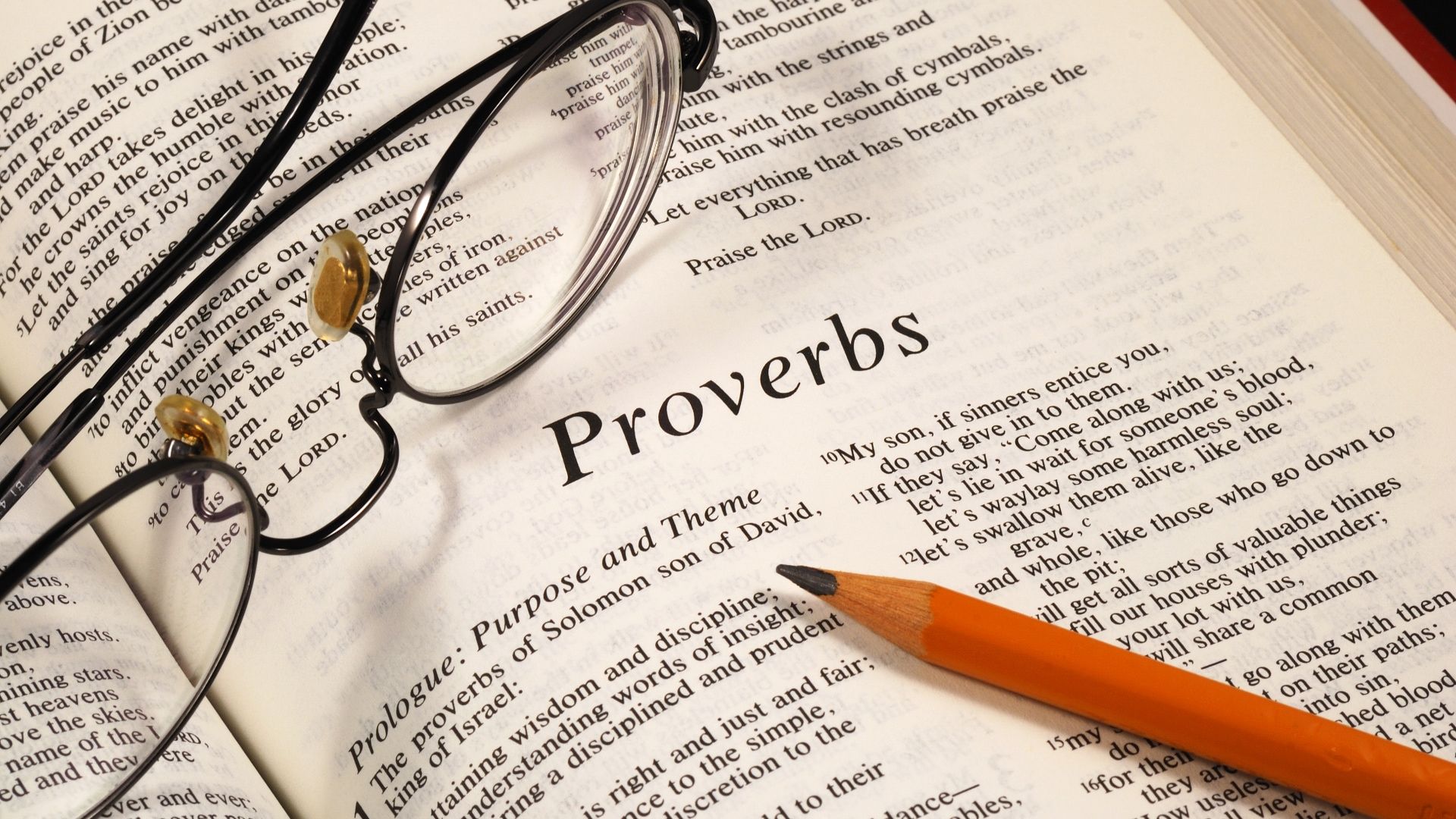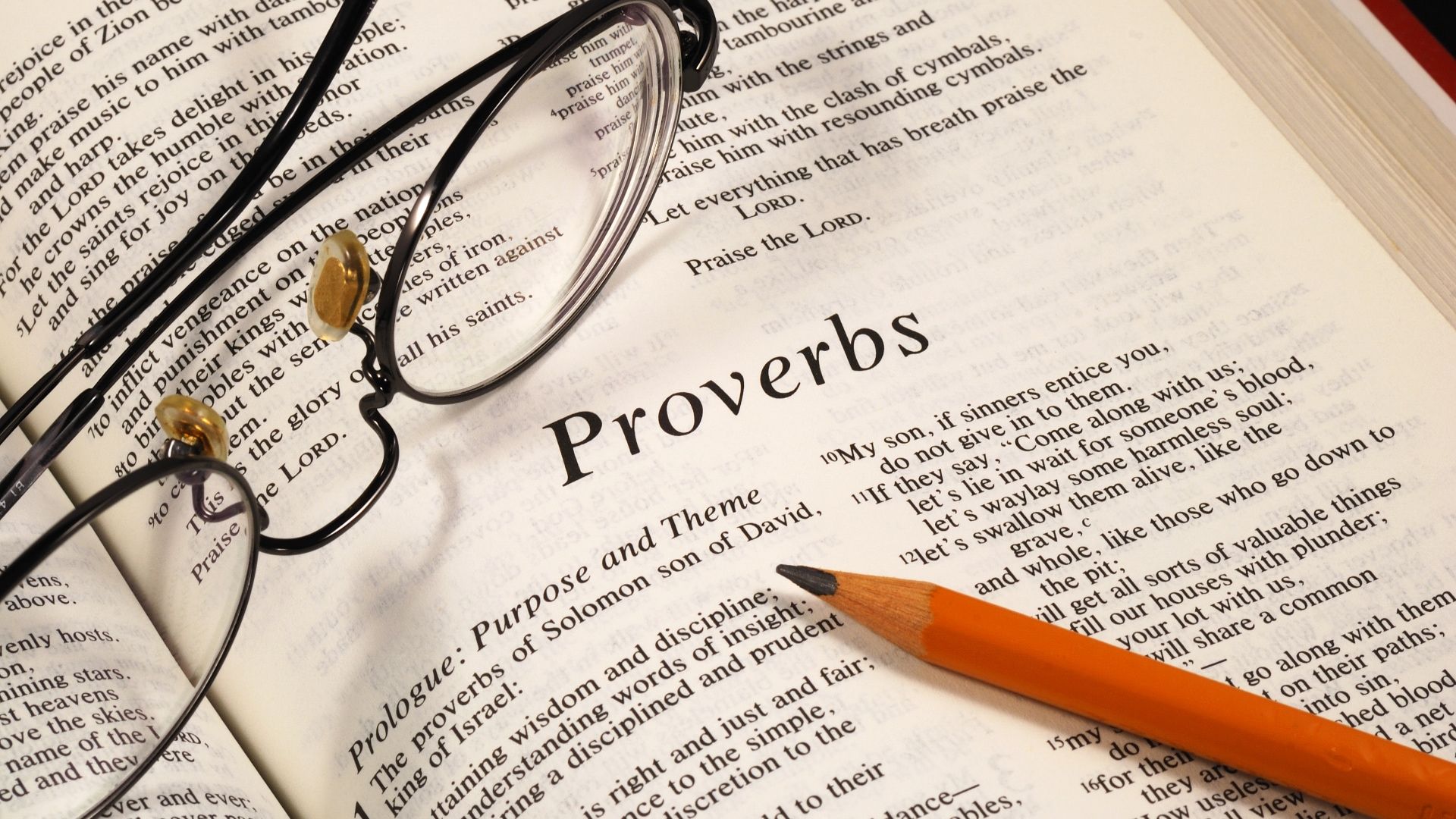Poverty (Proverbs)

275 years ago, Jonathan Edwards, one of the most brilliant theologians in American history, preached a sermon called "The Duty of Charity to the Poor, Explained and Enforced." The theme of the sermon was this: "Tis the most absolute and indispensable duty of a people of God to give bountifully and willingly for the supply of the wants of the needy." It's a powerful sermon, and well worth reading even today.
One of the things I really appreciate about this sermon is that he builds a solid case for why Christians should give to the poor. He says: "Where have we any command in the Bible laid down in stronger terms, and in a more peremptory urgent manner, than the command of giving to the poor?" And also:
It is not merely a commendable thing for a man to be kind and bountiful to the poor, but our bounden duty, as much a duty as it is to pray, or to attend public worship, or anything else whatever. And the neglect of it brings great guilt upon any person.
But then he anticipates the objections, and he lists them and dismantles them all:
- If I give, it won't be with the right spirit, so I won't give
- Being generous will make me self-righteous, so I won't give
- I've tried being generous before, but I didn't get any blessing from it
- Some may be poor, but they're not poor enough to deserve my help
- Some poor people are nasty, and so they don't deserve my help
- I've barely got enough for myself
- I can't be sure that this person really needs aid
- They never asked me
- It's their fault that they're poor
- If others were more generous, I wouldn't have to be so generous
- Leave it to the government
Do you know what this tells me? Things haven't changed. Out of the eleven objections listed, I think I've used at least six, maybe more. There are few issues that create more "Yeah, but…" statements, more objections, than when it comes to our duty to the poor.
Am I alone, or do some of you have objections? We were at Tom's Dairy Freeze this past week, and someone behind us obviously had some financial and other issues. Later on Charlene said, "I wonder if we should have bought him an ice cream cone?" My first thought was, "Maybe," closely followed by all kinds of reasons why we shouldn't have. I find it easy to look for the loopholes, for all the reasons why helping isn't always a good idea.
Yet Proverbs doesn't let us off, which is surprising because it was written by a well-off person likely for other well-off people, and usually well-off people are pretty good at coming up with reasons not to care about the poor.
Proverbs tells us three things when it comes to the poor. One: our duty. Two: the reason. Three: what we learn about God as a result of what he says about the poor.
So first, let's look at what Proverbs says about our duty to the poor.
You're expecting that Proverbs says a lot about giving to the poor, and it does. For example:
The generous will themselves be blessed,
for they share their food with the poor.
(Proverbs 22:9)
Those who give to the poor will lack nothing,
but those who close their eyes to them receive many curses.
(Proverbs 28:27)
If you go all through the book of Proverbs, you'll find more verses like this that tell kings to judge the poor fairly, for all of us to share food with the poor, and to give to those who have needs.
So this is the message of Proverbs: to give to the poor. Right? Not even close. That would be letting us off easy. The message of Proverbs actually goes a lot deeper. It's possible to give to the poor, but to do so grudgingly and with a terrible attitude. But Proverbs doesn't allow for this. This comes out in many of the proverbs that have to deal with the poor, but none of them more clearly than Proverbs 29:7:
The righteous care about justice for the poor,
but the wicked have no such concern.
Do you see the word care there? It's one of the most intimate, emotional, and relational terms in the Hebrew language. It means knowing, caring for, having sympathetic knowledge, and considering favorably. It's the same term that was used in Genesis 4 where it says that "Adam knew his wife," which was a euphemism for marital relations with his wife. In other words, you can't just give to the poor. Proverbs says you actually have to care about them. It has to be an attitude, something that you care about, something that touches you deeply.
Let me give you an example. The United Way puts out a report called Poverty by Postal Code. According to the United Way, the income gap is widening, and neighborhood poverty is intensifying in Toronto. Out of every three families you pass on the street, one of those families is living in poverty. One in three! Some are now calling Toronto the poverty capital of Canada. One of the areas that has experienced the greatest increase in poverty is Etobicoke.
Do you see what I just did? I bombarded you with statistics and information about poverty in our area, but I didn't touch your heart. But I've seen people at Richview go beyond statistics and actually develop significant relationships with impoverished people, and it's totally different from statistics. Statistics don't keep you up at night; people do.
It's relatively easy to give money to the poor. You can give a dollar here or there. You can even give lots of money away and volunteer your time. But that's not enough. Proverbs says that it actually has to touch your heart. The righteous person actually cares about the poor and their legal rights. Proverbs says that our duty isn't just to give to the poor; it's actually to care.
Michael Creek is a 50-year-old man who suffers from non-Hodgkin's lymphoma. After chemotherapy and surgery, he went into remission but developed "debilitating side effects" that left him unable to support himself. Creek recently appeared before a forum in Ottawa and spoke of getting to his apartment.
I must pass drug dealers and their victims often high on drugs. The elevator often has syringes, human waste and garbage covering the floor. Bedbugs and cockroaches have invaded my apartment traveling through holes left for plumbing and heating.
Poverty steals from your soul, leaving you with little or no hope. It robs you of all that can be good in life. It leaves you isolated, lonely and hungry and that is just the start of it. Every day is a struggle.
"The righteous care about justice for the poor," says Proverbs, "but the wicked have no such concern."
Well, we need to ask a question.
Why are we commanded to care for the poor?
You could begin with fairly selfish reasons, and there is some truth to these reasons. For instance:
Those who are kind to the poor lend to the LORD,
and he will reward them for what they have done.
(Proverbs 19:17)
Those who give to the poor will lack nothing,
but those who close their eyes to them receive many curses.
(Proverbs 28:27)
At this level, we're helping the poor because of what we get out of it. We feel good, and God promises to bless us.
But Proverbs actually goes much deeper than that. It gives us two very deep and theological reasons why it's absolutely critical for us to care about the poor. One of them has to do with people, and the other has to do with God.
First, people. Proverbs 22:2 says:
Rich and poor have this in common:
The LORD is the Maker of them all.
A few weeks ago I dropped somebody off at a house, except that it wasn't really a house. It was more like a mansion. I walked in and looked around. When I drove off I felt like I had seen how the other half lives. We came home and looked up the prices of houses in that area, and those houses are worth at least six times what our house is worth. We had discussions about how people can afford to live in places like that. We did not belong.
I've also been with people on the other end. I was in a home recently that if they had asked me to sit down, I would have had a hard time doing so. If they offered me food, I would have been concerned for my health. It was disgusting. I couldn't wait to get out.
When I look at people I see them as rich, middle class like me, or poor. But Proverbs tells us that when he looks at us, he sees us not according to class. He sees the rich and poor in just the same way: "The LORD is Maker of them all." There is absolutely no distinction. The poorest person you will ever meet is made and loved by God, and bears his image, as much as you do.
If there's anything that we've learned, it's that wealth is distributed inequitably in this world. There are children born into families in which they will experience every obstacle going. Nobody would say it's their fault that they were born in the wrong part of the world or to the wrong parents or in a bad neighborhood, but they don't stand a chance. But others are born with everything going for them, every advantage: private schools, tutoring.
When those who have had every advantage look at Scripture, and realize that the poor aren't at all different from them, that the LORD is maker of them and loves them every bit as much, and that to God they are worth every bit as much, then it will be impossible for that person not to care if she sees them the way that God sees them. If we don't care, that's evidence that we're not seeing people through God's eyes.
In fact, Proverbs goes even further. Proverbs 14:31 says that God so identifies with the poor that when you show contempt for them, you are showing contempt for God; and when you are kind to the poor, you are honoring God.
Whoever oppresses the poor shows contempt for their Maker,
but whoever is kind to the needy honors God.
Proverbs 15:25 says that God acts on behalf of the widow:
The LORD tears down the house of the proud,
but he sets the widow's boundary stones in place.
And Proverbs 23:10-11 puts it even more strongly:
Do not move an ancient boundary stone
or encroach on the fields of the fatherless,
for their Defender is strong;
he will take up their case against you.
When you pick a fight with those who are poor, or fatherless, or widows, Proverbs says, then you're picking a fight with God. I'm not sure that it's a good idea to pick a fight with God. Proverbs 21:13 says:
Those who shut their ears to the cry of the poor
will also cry out and not be answered.
I don't know how this could be put more strongly. Why should we care for the poor? One: because God made them, and they bear God's image just like you. Two: because God identifies with them and takes their side. God is actually on the side of the poor, and to not care for them is to not care about him. To pick a fight with the poor is to pick a fight with God.
Jesus said the same thing. When we stand before him one day, the way that we cared for the poor will be evidence that we care for him. He so identifies with the poor that he says, "Truly I tell you, whatever you did for one of the least of these brothers and sisters of mine, you did for me" (Matthew 25:40). But to those who did not care for the poor, that will be evidence that we never knew him. "Truly I tell you, whatever you did not do for one of the least of these, you did not do for me" (Matthew 25:45).
It's likely that right now you are feeling pretty guilty. When we hear that we're not just supposed to give to the poor, but we're really supposed to care in our hearts, to see them just as we see ourselves, and to realize that God identifies so strongly with them that to neglect them is to neglect him — this can all be overwhelming. That's why I don't want to leave you at this point.
We need to finish by looking at God.
What is the vision of God we see in Proverbs? It's the vision of a God who defends those who are defenseless, who provides for those without resources, who identifies with the poor and the needy. In other words, we meet a God of grace who provides what we can't provide for ourselves.
This is true when our need is physical. If you are here today and lack food or money, you need to understand that God is your Defender, and that he identifies with people just like you.
But for those of us today who realize that we are poor in spirit, that we don't love the way that he loves, that we need a transformation of the heart so that we can care the way we're reading about: we too are poor, and we need what only God can provide. He alone can solve the poverty within our hearts.
I began by talking about Jonathan Edwards and his sermon. Jonathan Edwards said:
Consider how much God hath done for us, how greatly he hath loved us, what he hath given us, when we were so unworthy, and when he could have no addition to his happiness by us. Consider that silver, and gold, and earthly crowns, were in his esteem but mean things to give us, and he hath therefore given us his own Son. Christ loved and pitied us, when we were poor, and he laid out himself to help, and even did shed his own blood for us without grudging. He did not think much to deny himself, and to be at great cost for us vile wretches, in order to make us rich, and to clothe us with kingly robes, when we were naked; to feast us at his own table with dainties infinitely costly, when we were starving; to advance us from the dunghill, and set us among princes, and make us to inherit the throne of his glory, and so to give us the enjoyment of the greatest wealth and plenty to all eternity. Agreeably to 2 Cor. 8:9, "For ye know the grace of our Lord Jesus Christ, that though he was rich, yet for your sakes he became poor, that ye through his poverty might be rich."
Considering all these things, what a poor business will it be, that those who hope to share these benefits, yet cannot give something for the relief of a poor neighbor without grudging! That it should grieve them to part with a small matter, to help a fellow servant in calamity, when Christ did not grudge to shed his own blood for them!
The path to truly caring for the poor is found in seeing how much Christ cared for us, so we could be made rich.
Father, we repent. We repent of not really wanting to care, of making all kinds of excuses, of seeing people at statistics without really knowing.
But today we see how much you care. We also see very clearly that you are calling us to care. May we see our own poverty, and what Christ did for us, so that we are changed to love the way that you love. In Jesus' name, Amen.





